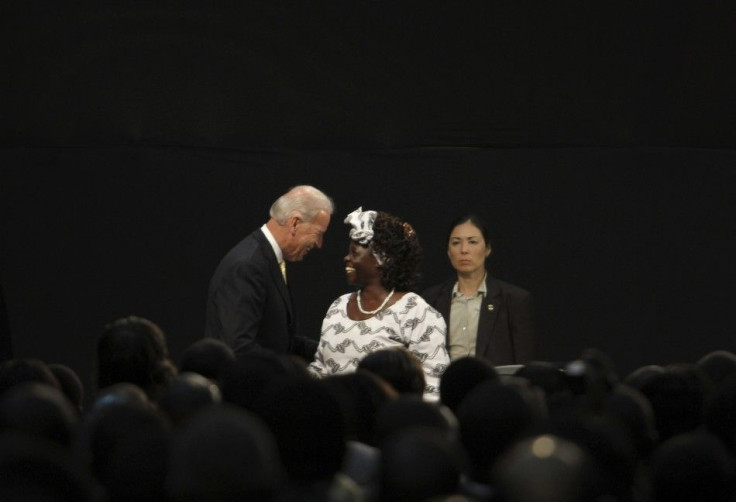Wangari Maathai Dead At 71 After Battle With Cancer

Wangari Maathai, Africa's first woman to win a Nobel Peace Prize, died late Sunday in the Kenyan capital of Nairobi. The cause of death was a lengthy battle with cancer, according to her organization's website.
It is with great sadness that the family of Professor Wangari Maathai announces her passing away, reads the statement on the website of the Green Belt Movement, which Maathai started in 1977.
The New York Times reported on Monday that Maathai had been treated for ovarian cancer over the past year, and she stayed in the hospital for at least a week before her death.
Maathai, the leader of the Green Belt movement, won the Nobel Peace Prize in 2004 for reforestation efforts in Kenya. The Nobel committee cited her contribution to sustainable development, democracy and peace in awarding her the honor. According to the organization's website, the Green Belt Movement has planted more than 40 million trees across Africa.
The Green Belt Movement quickly became a tool of empowerment for African woman, with Maathai leading the charge. She encouraged women to plant trees to meet present and future needs for food, clean water and firewood.
In the United States, President Barack Obama sent condolences to Maathai's family and the people of Kenya in a statement on Monday.
The world mourns you and celebrates the extraordinary life of this remarkable woman who devoted her life to peacefully protecting what she called 'our common home and future,' he said.
U.S. Secretary of State Hillary Clinton mourned the loss of a powerful force for peace, democracy and women's rights.
In her lifetime of tireless political, environmental and social struggles in Kenya, Maathai was routinely arrested and beaten during spars with the Kenyan government, most notably the regime of former president Daniel arap Moi.
The work led to her receiving the Nobel Peace Prize in 2004. Maathai used the opportunity of the news to look forward, not back at her accomplishments.
It is evident that many wars are fought over resources which are now becoming increasingly scarce, she said, according to the Green Belt Movement's website.
If we conserved our resources better, fighting over them would not then occur. ... So, protecting the global environment is directly related to securing peace. ... Those of us who understand the complex concept of the environment have the burden to act. We must not tire, we must not give up, we must persist.
On Monday, world leaders like Clinton were able to look back at the progress made from Maathai's efforts, as well as look ahead from what she was able to start.
Her death has left a gaping hole among the ranks of women leaders, Clinton said, but she leaves behind a solid foundation for others to build on.
© Copyright IBTimes 2024. All rights reserved.











